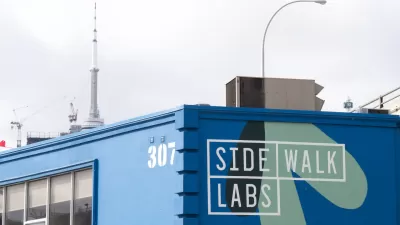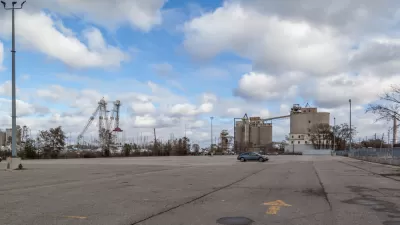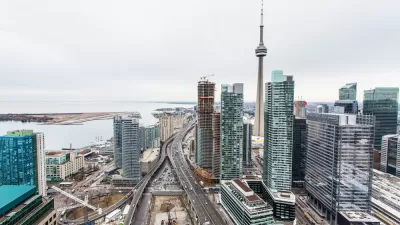The high-profile experiment in smart city planning and technology seems to have suffered a final setback.

Daniel L. Doctoroff, CEO of Sidewalk Labs, posted on Medium this morning to announce that the company is no longer moving forward with its smart cities partnership with Waterfront Toronto.
Sidewalk Labs, a subsidiary of Google parent company Alphabet, had been working to plan and redesign the Quayside district, a 12-acre parcel in Toronto, since 2017.
Sidewalk Labs released the Master Plan for the project in June 2019, encountered controversy, and then scaled the project back in October 2019. In February 2020, the project seemed to have a breakthrough after winning approval from Waterfront Toronto for several large components of the project. The coronavirus delayed hearings on the project in April, and then this news.
Doctoroff explains the decision to cancel the project as a symptom of the economic crisis caused by the coronavirus public health crisis. "But as unprecedented economic uncertainty has set in around the world and in the Toronto real estate market," writes Doctorff, "it has become too difficult to make the 12-acre project financially viable without sacrificing core parts of the plan we had developed together with Waterfront Toronto to build a truly inclusive, sustainable community."
Sidewalk Labs isn't gone for good, however, as Doctorff expresses continuing belief in the concepts of smart city technology, especially in light of the current crisis, and touts the company's other products.
FULL STORY: Why we’re no longer pursuing the Quayside project — and what’s next for Sidewalk Labs

Alabama: Trump Terminates Settlements for Black Communities Harmed By Raw Sewage
Trump deemed the landmark civil rights agreement “illegal DEI and environmental justice policy.”

Study: Maui’s Plan to Convert Vacation Rentals to Long-Term Housing Could Cause Nearly $1 Billion Economic Loss
The plan would reduce visitor accommodation by 25% resulting in 1,900 jobs lost.

Why Should We Subsidize Public Transportation?
Many public transit agencies face financial stress due to rising costs, declining fare revenue, and declining subsidies. Transit advocates must provide a strong business case for increasing public transit funding.

Paris Bike Boom Leads to Steep Drop in Air Pollution
The French city’s air quality has improved dramatically in the past 20 years, coinciding with a growth in cycling.

Why Housing Costs More to Build in California Than in Texas
Hard costs like labor and materials combined with ‘soft’ costs such as permitting make building in the San Francisco Bay Area almost three times as costly as in Texas cities.

San Diego County Sees a Rise in Urban Coyotes
San Diego County experiences a rise in urban coyotes, as sightings become prevalent throughout its urban neighbourhoods and surrounding areas.
Urban Design for Planners 1: Software Tools
This six-course series explores essential urban design concepts using open source software and equips planners with the tools they need to participate fully in the urban design process.
Planning for Universal Design
Learn the tools for implementing Universal Design in planning regulations.
Smith Gee Studio
Alamo Area Metropolitan Planning Organization
City of Santa Clarita
Institute for Housing and Urban Development Studies (IHS)
City of Grandview
Harvard GSD Executive Education
Toledo-Lucas County Plan Commissions
Salt Lake City
NYU Wagner Graduate School of Public Service




























